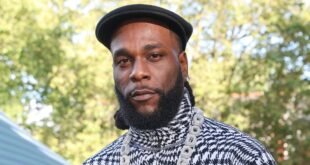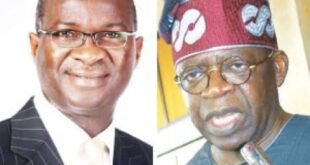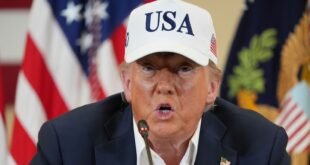When people knowledge stepped into the position of public trust, the way they speak become as important as what they know. A scholar who has been silent for forming a mind in the lecture hall now affects policies, opinions, and life. And in that new role, one truth becomes clear: If your voice must be trusted, your message must be clear.
That is why it is important – very – that scholars in public life draw a clean line between what they know, what they believe, and what they like. Mixing facts with feelings, or dressing personal opinions in the robe of science or scriptures, may win the short-term influence of the chips with long-term credibility. And when public trust is lost, it’s hard to return.
We have seen this difference handled well by some of the most respected voices in the world.
Take Paul Krugman, Nobel winner economist. His academic work in the economic field is celebrated globally. But in his political column for The New York Times, Krugman did not pretend to be neutral. He was open when he offered opinions – did not disguise his views behind complex data. Honesty makes him trustworthy, even for those who disagree with him.
Janet Yellen, the current US Minister of Finance and the former Chairman of the Federal Reserve, has also modeled this integrity. Known for his calm and proof of approach, he spoke with balance. While based on data, he acknowledged that the policy making involved an assessment. He does not use academic status to encourage personal preferences unconsciously. And clarity is why people are still listening when they speak.
In Nigeria, Dr. Ngozi Okonjo-iweala consistently realizes this same clarity. As Minister of Finance, he supports his reforms with facts – international audits, data and standards. But he also recognized political weight and was responsible for his decision. He did not hide behind the credentials of Harvard and his MIT. He faces the public with knowledge and courage – and gains eternal respect.
Amartya Sen, Indian development economist, did this too. He never obscured the boundary between statistics and ethics. He told the reader when he reported what the data said and when he advocated justice. And because he is honest about the difference, people take serious arguments – even crossing the ideological line.
This kind of honesty is not just a good scholarship. This is a good humanity.
Also read: Nasarawa Government Government Ordered Population of Flood Prone to Moving
Even in the Bible, we found examples of this humble clarity.
Jesus, who is believed by Christians to be a fully and fully human God, once responded to a warning about political threats with words: “Say it is the fox …” (Luke 13:32). He talked about Herod – not in the Divine Decree, but at a time of strong human consciousness. Jesus did not ask the name of God to convey his intention. He discussed the worldly situation with wisdom, then reiterated his mission: “I will continue to heal today and tomorrow.” He did not confuse heavenly calls with political attitudes – and that made his message stronger.
The Apostle Paul too, withdrawing the line clearly. In 1 Corinthians 7:12, he wrote, “For the rest I say this (me, not God) …” The phrase said many things. Paul openly told the audience: this part of me, not from God. And by doing that, he gets more trust, no less.
In Islam, the Prophet Muhammad (peace on it) shows this clarity too. Al-Qur’an confirms in Surah An-Najm (53: 3–4) that the Prophet’s revelation came directly from God. But in practical matters, he made an independent decision. After Badr’s battle, for example, he chose to redeem prisoners. The Qur’an then offers divine correction (Surah Al-Anfal 8: 67-68). On another occasion, he advised people about agriculture, and when he failed, he admitted: “You are more knowledgeable about your worldly affairs.” He did not obscure the sacred one with the practical ones – and the separation helps people trust both of them.
Even today, Christian preacher Joseph Prince warned of the habit of saying “God told me …” for every personal feeling. He reminded people of believers: not everything we think or feel has divine support. Sometimes, it’s only us – and we need to have it.
Because in the end, clarity is not a weakness. That’s humility. That’s honesty. This respects your audience and truth itself.
When scholars or leaders say clearly: “This is what I know. This is what I believe. This is what I think must happen,” they give people space to trust, reflect, and respond freely. And such leadership builds something deeper than agreement – it builds credibility, compassion, and connection.
In a noisy world where there are too many claim authorities that they do not have, those who talk to clear lines and honest hearts will always stand out.
Author: Abidemi Adebamiwa
The article published in our graffiti section is the opinion of the writers and does not represent Nigerian ripple views or the editorial booths.
 JamzNG Latest News, Gist, Entertainment in Nigeria
JamzNG Latest News, Gist, Entertainment in Nigeria









